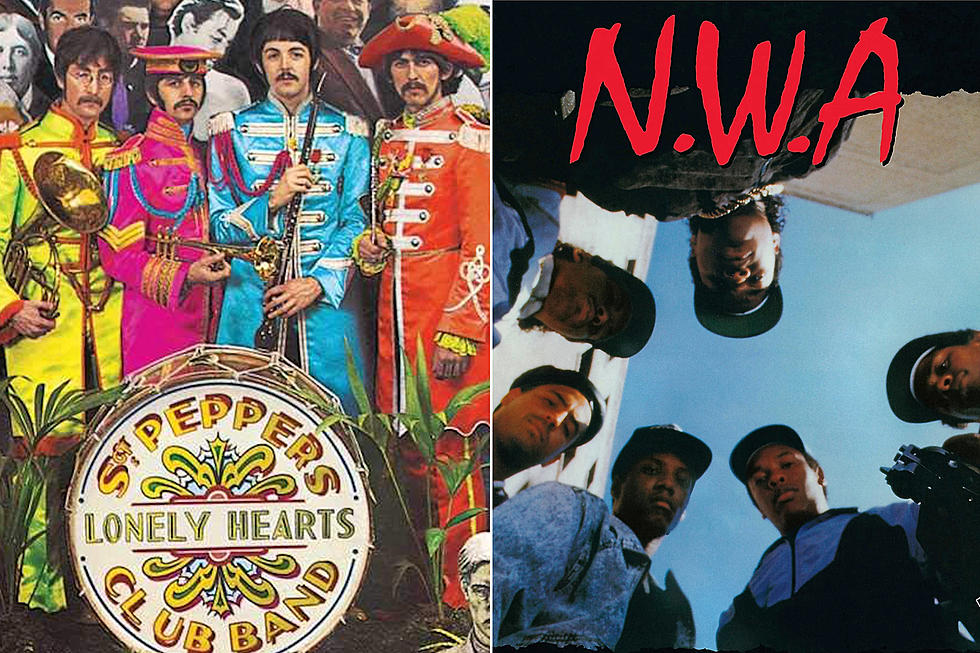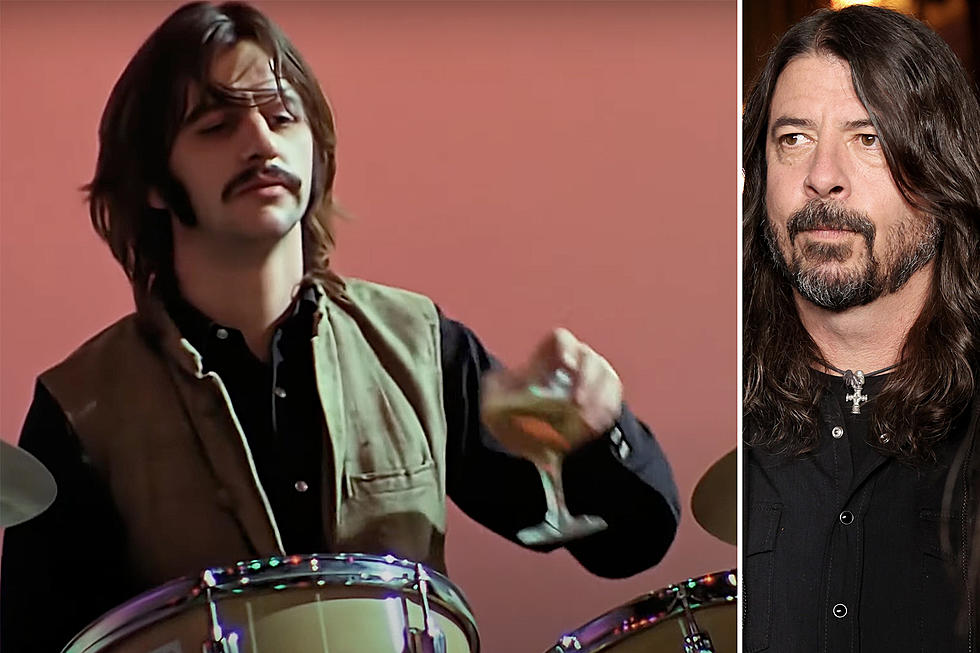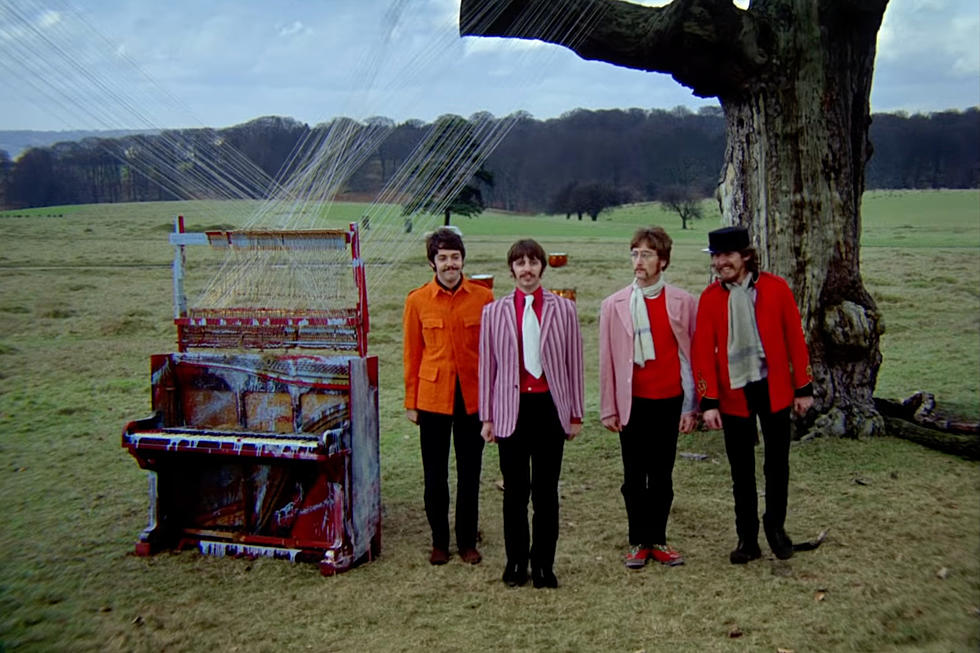
Did the Beatles’ ‘Sgt. Pepper’ Help Spawn Gangsta Rap?
There’s little question that the Beatles are among the most influential acts in rock history, but a key figure in hip-hop’s early years also credited the Fab Four for indirectly aiding in rap’s ascent to the mainstream.
In a recently discovered interview, Jerry Heller, the music manager who worked with a long list of rap stars including N.W.A, said the Beatles’ 1967 album Sgt. Pepper’s Lonely Hearts Club Band “set the bar so impossibly for all other rock and rollers.”
“The focus of the music business then became, how are the labels going to recoup and how are they going to make money when they’re spending this much money on records?” Heller explained, noting the music industry’s financial dynamics changed as a result of the famous album. Recording costs began skyrocketing as other acts searched to create their own Sgt. Pepper-style concept album, a fad that also coincided with the rise in grandiose prog-rock. Some acts succeeded in their quest, but many more failed, leaving record labels with some hefty bills.
“When you sell 100,000 records, you’re supposed to make money,” Heller noted. “It’s not supposed to be like what became at Interscope where the average artist had to sell 1.2 million units just to recoup.”
Enter hip-hop. In the ‘80s, the genre was in a similar space to where rock had been in its early years, with burgeoning talent making amateur recordings in garages and makeshift home studios.
Heller noted that the early rap hit “Supersonic” by J.J. Fad was recorded for just $200, while huge hit albums Straight Outta Compton (by N.W.A) and Easy Does It (by N.W.A founder Eazy-E) were made for $12,000 and $8,000, respectively. Labels quickly took notice, realizing that investing in a rap album cost far less than another bloated rock release.
“It’s just so ironic that this incredible album [Sgt. Pepper] really was the start of the first downfall of rock 'n' roll,” he opined.
The recently uncovered Heller interview - which dates back to 2011 - was conducted by Ted Stryker, who featured the audio on his Tuna on Toast With Stryker podcast. The conversation with Heller, who died in 2016, can be listened to in its entirety below.
The Best Song From Every Beatles Album
More From Highway 98.9










